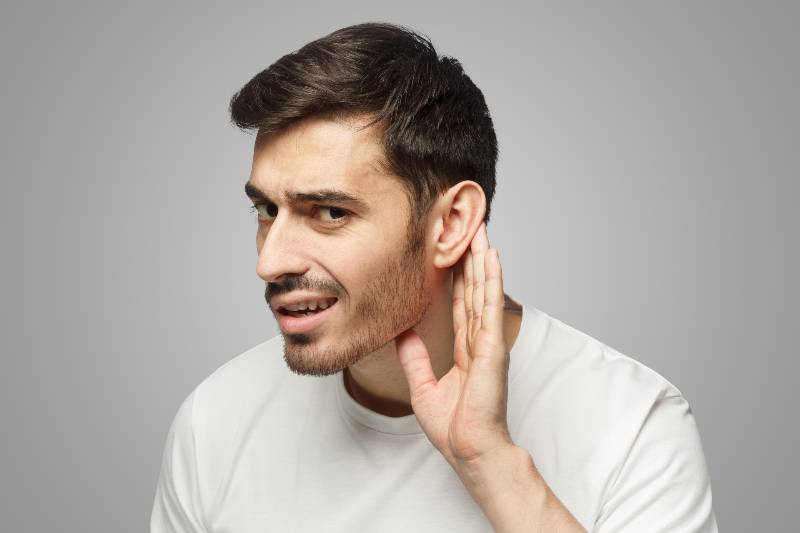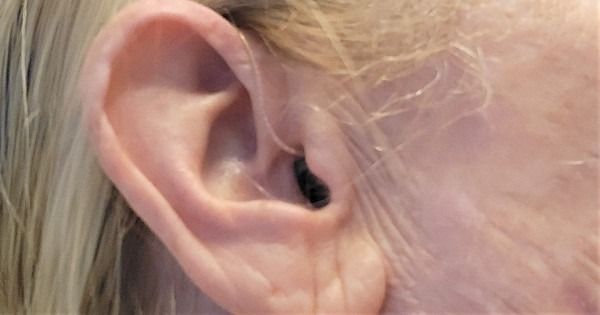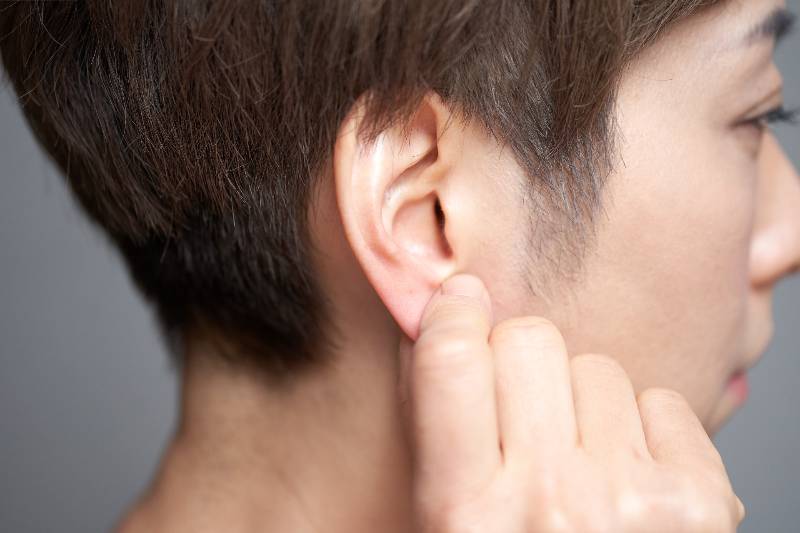Introduction
Meningitis and Hearing Loss: Unconventional Approaches
Meningitis is a serious infection that causes inflammation of the protective membranes of the brain and spinal cord. It can be caused by bacteria, viruses, fungi, or parasites, but bacterial meningitis is the most common and dangerous type. One of the most severe complications of bacterial meningitis is hearing loss, which can affect up to 50% of people who survive the infection. Hearing loss can occur within weeks or months after meningitis and is usually permanent. It can range from mild to profound and affect one or both ears.
Hearing loss can have a significant impact on the quality of life of people who have had meningitis. It can affect their communication, education, work, social interactions, and mental health. However, there are ways to cope with hearing loss and access support and rehabilitation services that can help them overcome the challenges they face. In this blog post, we will explore some of the unconventional approaches that can complement the conventional treatments for hearing loss after meningitis, such as:
• Alternative therapies for alleviating meningitis-associated hearing loss
• Mindfulness and meditation: managing the emotional challenges of hearing loss
• Art and music therapy: creative outlets for meningitis survivors with hearing loss
• Yoga and exercise: promoting well-being in individuals with meningitis-induced hearing loss
• Animal-assisted therapy for meningitis patients coping with hearing loss
• Empowering meningitis patients: strategies for self-advocacy and independence
Alternative Therapies for Alleviating Meningitis-Associated Hearing Loss
Conventional treatments for hearing loss after meningitis include antibiotics, steroids, hearing aids, cochlear implants, and auditory rehabilitation. However, some people may seek alternative therapies that can offer additional benefits or address the underlying causes of hearing loss. Some of the alternative therapies that have been suggested for alleviating meningitis-associated hearing loss include:
• Antioxidant therapy: This involves using substances that can protect the cells from oxidative stress and inflammation caused by bacterial toxins or free radicals. Antioxidants may include vitamins (such as vitamin C, E, or A), minerals (such as zinc or selenium), herbs (such as ginkgo biloba or garlic), or synthetic compounds (such as N-acetylcysteine or manganese (III) tetrakis (4-benzoic acid) porphyrin). Some studies have shown that antioxidant therapy can reduce the incidence and severity of hearing loss in animal models of meningitishttps://onlinelibrary.wiley.com/doi/10.1002/ana.10684https://www.stlukes-stl.com/health-content/medicine/33/000106.htm, but more research is needed to confirm its efficacy and safety in humans.
• Hyperbaric oxygen therapy: This involves breathing pure oxygen in a pressurized chamber that increases the amount of oxygen delivered to the tissues. Hyperbaric oxygen therapy may enhance the healing process and reduce the damage caused by infection or inflammation. Some studies have shown that hyperbaric oxygen therapy can improve the hearing outcomes in patients with sudden sensorineural hearing losshttps://www.verywellhealth.com/cause-of-hearing-loss-meningitis-1046566 , but its role in meningitis-associated hearing loss is unclear and controversial.
• Acupuncture: This involves inserting thin needles into specific points on the body to stimulate the flow of energy (qi) and restore balance. Acupuncture may modulate the immune system, reduce inflammation, improve blood circulation, and relieve pain. Some studies have shown that acupuncture can improve the hearing function and quality of life in patients with sensorineural hearing loss , but its effectiveness in meningitis-associated hearing loss is unknown and requires further investigation.
Mindfulness and Meditation
Managing the Emotional Challenges of Hearing Loss
Hearing loss after meningitis can be a traumatic experience that can trigger a range of emotions, such as shock, anger, grief, denial, guilt, anxiety, depression, and isolation. These feelings are normal and understandable, but they can also interfere with the recovery process and the adjustment to hearing loss. Therefore, it is important to seek professional help if these emotions become overwhelming or persistent.
Some of the coping strategies that can help people with meningitis-related hearing loss include:
• Mindfulness: This involves paying attention to the present moment with curiosity, openness, and acceptance. Mindfulness can help people with hearing loss become more aware of their thoughts, feelings, and sensations without judging them or reacting to them. Mindfulness can also help them focus on the positive aspects of their lives and cope with the negative ones. Mindfulness can be practiced through meditation, breathing exercises, yoga, or other activities that promote attention and awareness.
• Meditation: This involves training the mind to achieve a state of calmness, clarity, and concentration. Meditation can help people with hearing loss reduce stress, anxiety, depression, and pain. Meditation can also enhance their self-esteem, self-compassion, and emotional regulation. Meditation can be practiced in various ways, such as guided imagery, mantra repetition, body scan, or loving-kindness meditation.
What to Look for in Inexpensive Hearing Aids
Art and Music Therapy
Creative Outlets for Meningitis Survivors with Hearing Loss
Art and music therapy are forms of expressive therapy that use creative mediums to facilitate healing and well-being. Art and music therapy can help people with hearing loss express their emotions, thoughts, and experiences in a safe and supportive environment. Art and music therapy can also help them develop their creativity, imagination, and communication skills. Art and music therapy can be done individually or in groups, with or without the guidance of a therapist.
Some of the benefits of art and music therapy for people with hearing loss include:
• Art therapy: This involves using various materials (such as paints, clay, collage, or photography) to create artworks that reflect the inner world of the person. Art therapy can help people with hearing loss explore their identity, feelings, memories, and dreams. Art therapy can also help them cope with trauma, grief, loss, and isolation. Art therapy can also enhance their self-expression, self-awareness, and self-confidence.
• Music therapy: This involves using various elements of music (such as sound, rhythm, melody, or harmony) to create or listen to music that resonates with the person. Music therapy can help people with hearing loss stimulate their auditory system, improve their hearing function, and enhance their speech perception. Music therapy can also help them relax, reduce stress,improve mood, and increase self-esteem. Music therapy can also stimulate their creativity, memory, and cognitive skills.
Tinnitus: why it’s still such a mystery to science
Yoga and Exercise
Promoting Well-being in Individuals with Meningitis-Induced Hearing Loss
Yoga and exercise are physical activities that can benefit people with hearing loss in various ways. Yoga and exercise can help them improve their physical health, mental health, and quality of life. Yoga and exercise can also help them cope with the stress, pain, and fatigue that may result from meningitis or hearing loss.
Some of the benefits of yoga and exercise for people with hearing loss include:
• Yoga: This involves performing a series of poses that stretch and strengthen the body, while breathing deeply and meditating. Yoga can help people with hearing loss improve their balance, posture, flexibility, and coordination. Yoga can also help them relax, calm their mind, and enhance their awareness. Yoga can also reduce their blood pressure, heart rate, and inflammation.
• Exercise: This involves engaging in any physical activity that raises the heart rate and makes the muscles work. Exercise can help people with hearing loss improve their cardiovascular health, muscle strength, bone density, and immune system. Exercise can also help them prevent or manage chronic diseases, such as diabetes, obesity, or osteoporosis. Exercise can also boost their mood, energy, and confidence.
Animal-Assisted Therapy for Meningitis Patients Coping with Hearing Loss
Animal-assisted therapy is a type of therapy that involves interacting with animals, such as dogs, cats, horses, or dolphins. Animal-assisted therapy can help people with hearing loss cope with the emotional and social challenges of hearing loss. Animal-assisted therapy can also help them improve their physical and mental health.
Some of the benefits of animal-assisted therapy for people with hearing loss include:
• Reducing stress, anxiety, depression, and loneliness
• Increasing happiness, comfort, and affection
• Enhancing communication, social skills, and empathy
• Providing companionship, support, and motivation
• Improving self-esteem, self-confidence, and self-efficacy
• Encouraging physical activity and mobility
• Stimulating cognitive function and memory
Conclusion
Meningitis and hearing loss are serious conditions that can affect anyone at any age. They can have a profound impact on the physical, mental,Conclusion
Meningitis and hearing loss are serious conditions that can affect anyone at any age. They can have a profound impact on the physical, mental,

Pioneering Pathways in Sensorineural Hearing Loss Research
An exploration of sensorineural hearing loss, focusing on causes, innovative research, and potential treatments. Understanding this can guide effective prevention strategies and improved quality of life.








